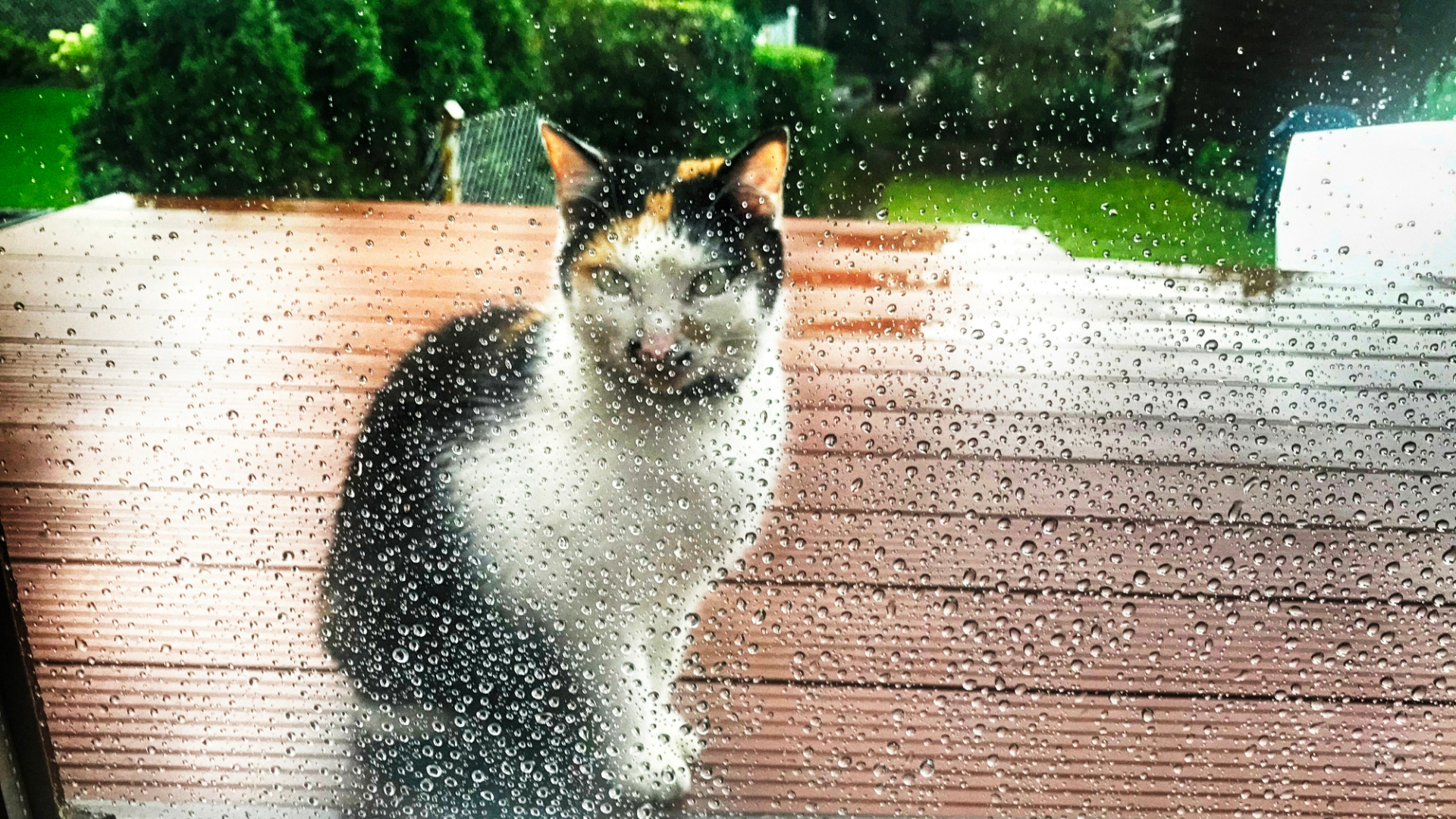Wondering can cats find their way home? Here’s the answer (and it might surprise you)
Here’s whether cats can find their way home - and how to attract them back.

If your furry friend has gone missing, then you might wonder, ‘Can cats find their way home?’ Our pets are like family to us, so there’s nothing worse than having concerns about their whereabouts - especially if you’ve recently moved.
If luring them home with the best cat food hasn’t worked, then you could be feeling rather worried if it’s been a long time. But, you’ll be pleased to know that cats are clever little things when it comes to navigating their way back - even after days, weeks, months, or years!
Learning how to make the transition from indoor to outdoor cat can be tricky, but rest assured that they have very good instincts for it. By letting your cat outside, it gives them more opportunities to exercise, play, and activate their natural hunting instincts - all of which are great for their mental and physical health.
Whilst these are all important things for your cat’s welfare, having an outdoor kitty doesn’t come without risks, so it might be worth investing in one of the best pet trackers to help you locate them. It’s also crucial that they are microchipped and have all of their vaccinations up to date.
If you’re struggling to find your cat, then you probably have lots of questions, like whether they can find their way to a new home, and how to attract them back. Keep on reading for the answers:

Practicing as a full clinical animal behaviorist member, Amanda's passion is cats -helping to correct all their quirky unwanted issues, anxiety, and stresses that can manifest from time to time. Amanda has worked alongside charities for many years, helping rehabilitate cats from surrender and euthanasia. She previously had her own cattery, fostering and rehabilitating traumatized shelter cats, enabling them to go in to have happy lives with their new owners. She loves engaging with the cat caregivers and deciphering what problems they are having, as well as using her detective skills to find out what the cats’ problems are. As a CAB, she assists with a wide range of feline behaviors but the most rewarding to her is to see a previously traumatized or anxious cat start to trust again which is life-changing for the cat.
Can cats find their way home from miles away?
Yes, they absolutely can. An early study regarding the homing powers of cats, published in The Scientific Monthly in 1922, found that a mother cat separated from her kittens was able to locate them seven times at varying distances between one and four miles.
How far can a cat find its way home?
A survey by Lost Pet Research and Recovery that was conducted between 2013 and 2018 revealed impressive results, with cats traveling anywhere from as little as 0.2 miles to as much as 80 miles to return to their homes.
Get the best advice, tips and top tech for your beloved Pets
The cats in the study took anywhere between eight hours and 2.5 years to find their way back with an average speed of one mile per day, but all of them eventually made it home.
Can cats find their way home after adverse weather conditions?

Most domestic cats will automatically start to head for home when they sense that the weather is on the turn, but if they do get caught in a downpour or a winter storm, this will likely impact their ability to navigate their way back quickly.
The reason for this is that weather such as rain and snow change the way the terrain looks, often turning soil into mud and washing away the scent markers that your cat would have left behind when they began their trip.
Because of this, some cats will choose to abort their homeward mission and instead choose to temporarily hunker down in whatever shelter they can find, whether that be a barn, shed, bushes and hedges, or underneath someone’s porch.
Can cats find their way back to a new home?
Cats have incredibly powerful senses, with their fur and paws gathering information from their environment and sending it to their brain for processing. This, along with their well-developed sense of smell and acute hearing can make finding their way home easier than it might be for other animals.
That being said, a move to a new home can make it harder for your cat’s natural navigation system to kick in and help them track their way back. That’s because your feline friend often relies on the scent markers they leave behind on their adventures and if they haven’t been in one spot for long, they’ll be a lot less of those for them to follow.
While it’s absolutely possible that your kitty will settle into their new home immediately and be able to find their way back from the get go, for other cats, it could take them longer to get the lay of the land. Some kitties will try and return to their former home if they lived there a long time, so it’s worth asking your old neighbors to keep an eye out for your fur baby.
Should I be worried if my cat hasn't come home?
Whether you should be worried much depends on your cat’s personality and how long they’ve been gone for. If your cat spends the bulk of their time outdoors, they may well disappear for an entire day, returning home at the end of the day just in time to tuck into their evening meal. Some adventurous cats will also happily head off for several days at a time if they have a particularly adventurous streak.
When to start worrying will depend on what’s normal for your feline friend. Cats can go several weeks without eating but they can only survive three days without water, so even if your cat has a serious independent streak, if 48 hours has gone by and you’ve not seen them, you’ll want to start looking for them.
If your cat is usually an indoor kitty and isn’t used to being in nature’s backyard for prolonged periods, we recommend you lessen the 48 hour time period considerably. In cases like these, you’ll want to start looking after you’ve not seen your cat for 12 hours.
How to attract a cat back home

If you’ve been scouring the neighborhood and you haven’t had any luck locating your precious feline friend, don’t panic - there are plenty of other things you can try to encourage them to return home under their own steam:
- If your kitty is a fan of the best cat treats, put a bowl of these by the door
- Put your cat’s bed, favorite blanket, scratching post and toys outside - if they are within a particular radius, the scent will attract them
- Try other special foods, like tuna or sardines - these are super smelly and if you heat them up, the aroma will waft for miles
- Science has shown that cats are very attracted to their human’s voice and it’s recognizable to them from some distance away. The caveat here is that it has to be your normal voice, not a fearful or panicked voice calling their name as this will have the opposite effect. Go outside and talk on the phone or chat in person to a family member or friend - this tone is what your kitty will be most drawn to.
Most importantly, don’t give up - time and time again pet owners are reunited with their feline friends days, weeks and even months after they go missing. Although it’s incredibly difficult to be apart from your much-loved moggy, stay consistent and follow the tips below if your cat hasn’t responded to your attempts to attract them back.
What to do if your cat has gone missing
Once your cat has been missing overnight and they haven’t been home in the morning, do a thorough check of the house from top to bottom. Some kitties are notorious for climbing into every open closet or cupboard door and they may well have got stuck somewhere they’re not able to get out of. The same is true for garages, outside storage boxes, sheds, dustbins, etc.
If you haven’t located them by this point, it’s worth asking your neighbors to also check their garden sheds and other places that your cat may have got locked in. If your neighbors do a good sweep and aren’t able to locate your feline friend, then it’s time to escalate things.
For cats that are microchipped, you’ll want to jump onto the microchip database and register them as missing. In the US, you can use the pet microchip registration database Petlink and, in the UK, you can head to petlog.
After you’ve done this, grab some clear photographs of your cat that show them off from every angle. You can use these to make flyers that also contain all the relevant information about your feline friend, including their name, age, color, any distinguishing features they might have as well as your contact information.
Distribute these to local vets in the area, all animal shelters and rehoming charities, your local police station, boarding catteries, lost and found pet websites, around your neighborhood, and on social media.
Conduct several searches of your neighborhood, both during the day and at night. Make sure you take a flashlight if you’re going to be out in the evening, you’ll want to have a cat carrier that you can pop your feline friend into if you locate them, as well as some treats and a warm blanket.
Do missing cats usually come back?

Missing cats can absolutely come back. A 2018 study published in Animals found that 61% of lost cats were found alive within 12 months while 34% of lost cats were found alive within seven days.
Researchers found that doing regular physical searches increased the chances of finding a missing cat and they also noted that 75% of cats were found within 500 meters of where they went missing from.
Why do cats run away?
When you’ve given your cat everything they need, like the best cat bed, you might be curious as to why they’ve run away. We asked Amanda Campion CAB, a clinical animal behaviorist:
She says: “Cats may run away from home for a number of reasons. It could be that they have recently moved into a new home as an adopted cat or moved house with their existing human family. As cats are a very territorial species, boundaries are so important to them. So they may seek to find their previous territory not understanding they could be many many miles away but nonetheless will be instinctively driven to find ‘home’.
“Another less obvious reason that could cause a cat to leave home is a change in their existing living environment. It could be the arrival of a new baby, other species such as a dog, or even a new cat that has left the resident cat feeling intimidated and vulnerable.
“Very often I hear of cats with more than one home, sometimes choosing the peace and tranquility of a neighbor's front room in favor of their own which can be upsetting for the cat's parents, but human caregivers need to understand and facilitate optimum cat welfare needs based on each individual cat.”
Read next: how far do cats roam?
Cube Real Time GPS Dog & Cat Tracker
Pet trackers give you peace of mind about your cat’s location. Simply clip the GPS onto their collar and you can track them in real-time. This one has a battery of 10 to 60 days and connects to cellular networks.

Kathryn is a freelance writer who has been a member of the PetsRadar family since it launched in 2020. Highly experienced in her field, she's driven by a desire to provide pet parents with accurate, timely, and informative content that enables them to provide their fur friends with everything they need to thrive.
Kathryn works closely with vets and trainers to ensure all articles offer the most up-to-date information across a range of pet-related fields, from insights into health and behavior issues to tips on products and training.
When she’s not busy crafting the perfect sentence for her features, buying guides and news pieces, she can be found hanging out with her family (which includes one super sassy cat and a kitten), drinking copious amounts of Jasmine tea and reading all the books.
She has written for a range of publications, including Fit&Well, Top Ten Reviews, LiveScience, Goodto, and Product Hunt.

